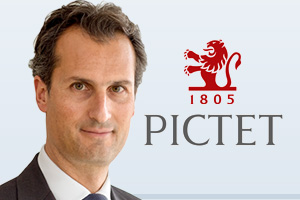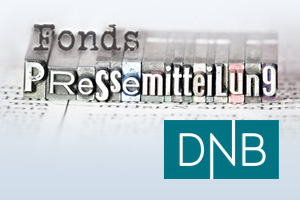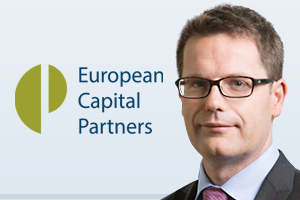
Im Januar 2021 gelang es den Umwelttechnologie-Aktien, mit ihrer Wertentwicklung den MSCI World auszustechen. Besonders Titel aus den Bereichen Energieeffizienz und Umweltschutz entwickelten sich überdurchschnittlich. In diesem freundlichen Marktumfeld generierte der Pictet – Global Environmental Opportunities P EUR (WKN A1C3LN, ISIN LU0503631805) eine Performance von +1,36 Prozent auf Monatsbasis. Pictet-FondsManager Luciano Diana analysiert für alle Investoren der FondsStrategie SJB Nachhaltig die neuesten Entwicklungen im Sektor der Umwelttechnologie. Der aktuelle Marktbericht thematisiert die FondsPerformance, die Veränderungen im Portfolio sowie den Ausblick für die Aktienmärkte des Environmental-Sektors.
Market review
January 2021 will be remembered as the month when populism shook the foundations of Wall Street. Amateur traders, whose ranks and investment resources have swollen with the emergence of commission-free trading platforms and as governments have enforced lockdowns and boosted welfare payments, launched a coordinated assault on hedge funds with short positions in struggling firms. By driving up the shares of heavily-shorted companies, such as video game retailer GameStop – which rallied by much as 1,600 per cent on the month – day traders succeeded in inflicting heavy losses on some of the most revered money managers. The volatility of share prices spiked, with the VIX Index surging by much more than could be expected given the relatively modest decline in equity prices. The disruption caused by day traders unsettled a market already concerned by high valuations, the persistently high Covid-19 infection rates and delays in the rollout of vaccinations. The fourth quarter earnings season has so far been positive, but companies’ lack of clarity on 2021 prospects also weighs on stocks. The MSCI World Index of global stocks ended marginally down on the month in US dollar terms while US stocks fell by almost 1 per cent. Bonds also ended lower in both local currency and US dollar terms while oil gained more than 6 per cent, helping energy stocks deliver returns of some 2 per cent.
Performance analysis
The strategy outperformed the world equity market during the month. The main contribution to performance from a segment perspective came from Energy Efficiency and Pollution Control, both driven by positive company results. This time Renewable Energy underperformed, as investors took some profits after Democrats won the senate majority in the US. Renewable energy stocks that underperformed include Xinyi Solar, Orsted, Vestas, Solaredge and Array. Semiconductor companies were the stars of the month, as bottlenecks in the production and an announcement of capacity addition point to a very healthy market. Applied Materials and ASML, which both manufacture cutting-edge equipment, as well as On semi were all standouts. In Pollution Control, Danaher and Thermo Fischer had outstanding results, in large part thanks to exposure to Covid-19-related testing. The most impressive performance came from Amwell after a placement from Beyond Meat, which announced a partnership with Pepsico to develop plant-based snacks, and from Niu, which we think was clearly undervalued.
Portfolio activity – overweightings & underweightings
We mainly increased Energy Efficiency during the month. We funded this with Waste Management & Recycling and small percentages of all other segments. We added NXP Semiconductors and Nidec to the portfolio, two companies that benefit from current cyclical upswings and that have a good exposure to e-car manufacturing. Also in Advanced Transportation, we continued to build our positions in Xpeng and Niu, Chinese electric car and scooter makers, while adding to Infineon, a leader in power semiconductors. We also increased Lam research and On Semi in the semiconductor space as results pointed to tight markets in the sector. In Building Efficiency, we sold Kingspan. In Renewable Energy, we took profits in Orsted and participated in the IPO of Shoals Technologies, a company whose products help reduce the cost of large solar energy farms by simplifying their connection to the grid. We reduced American Water Works and Equinix, two stocks that tend to be sensitive to rates. We sold Waste Management, SGS and Halma, three companies that we think will benefit relatively less from this year’s improvements in economic growth. For the same reason, we reduced Symrise and Givaudan. In Dematerialized Economy, we took profits in Cadence and Citrix and added two new stocks: PTC, a maker of software that improves industrial efficiency, and Ping An Healthcare, a Chinese telemedicine company.
Market outlook
The outlook for the environmental theme looks promising in 2021. The governments of Europe, China and now also the US – the world’s three major economic blocs – are now all aligned on supporting technologies aimed at making their economies more efficient, less resource intensive and ultimately more sustainable. Even more importantly, corporates continue to invest in innovation and drive down the cost curves of many disruptive environmental technologies, despite the short-term Covid-related economic uncertainty. For example, the electrification and the digitization of entire sectors of the economy, such as transportation, manufacturing, buildings, construction etc., is poised to accelerate. This will benefit disruptive solution providers across the Renewable Energy, Energy Efficiency and Dematerialized Economy segments of our portfolio. In addition, companies that contribute to a cleaner environment are also likely to see robust demand, for example those in our Pollution Control segment. These companies reduce the negative health effects of pollution, help prevent future diseases and in general help rebalance the relationship between humans and nature.
Portfolio strategy
Our strategy remains firmly focused on investing in environmental solutions providers. We believe that exposure to environmental trends offers investors attractive risk-adjusted returns, regardless of the stage of the economic cycle. We favour solutions providers with wide economic moats, robust profitability, healthy balance sheets and business models that don’t rely on government subsidies. These companies are not only likely to weather a difficult economy, but also to perform well during the recovery phase. We favour exposure to defensive business models and avoid the more cyclical parts of the economy. Our bottom-up investment process results in a concentrated global portfolio with a growth and quality bias. Long-term, the trends of population growth and rising living standards are inescapable and so is the growing strain on natural resources. Awareness of environmental issues has grown tremendously in the last few years and is now deep-seated, top of mind for an entire generation of citizens, consumers and investors.
Pictet – Global Environmental Opportunities Management Team
Luciano Diana
Gabriel Micheli
Yi Du



